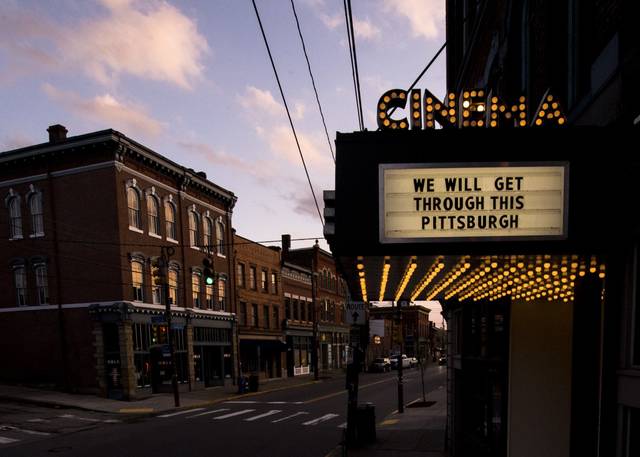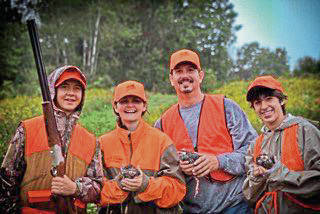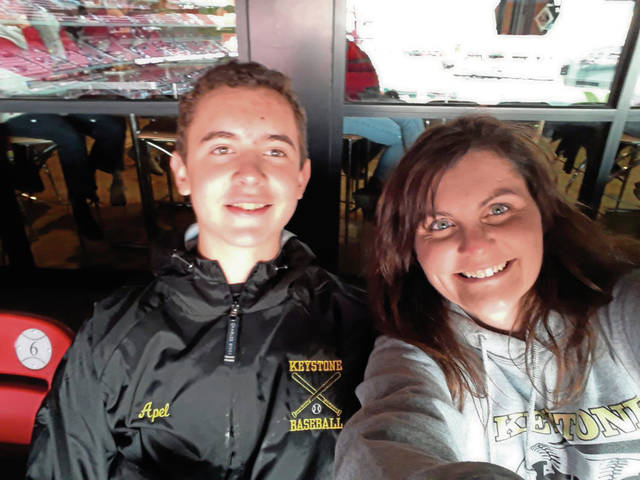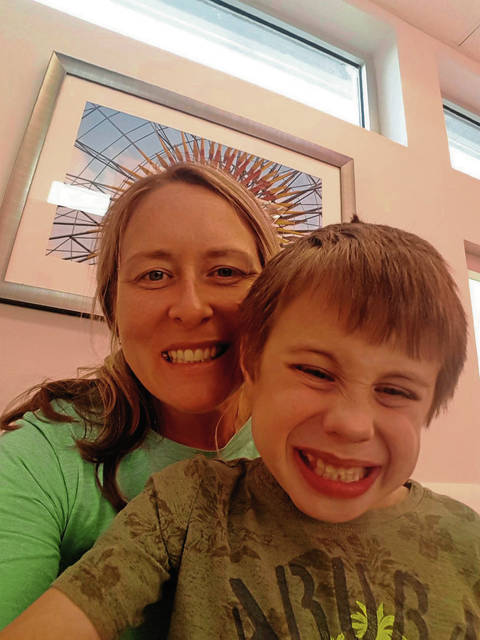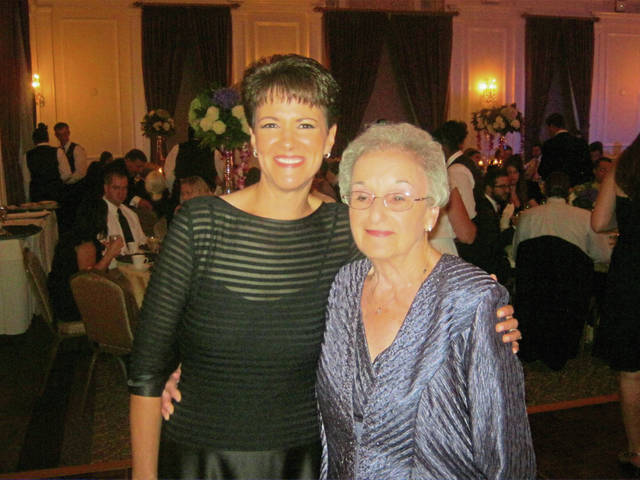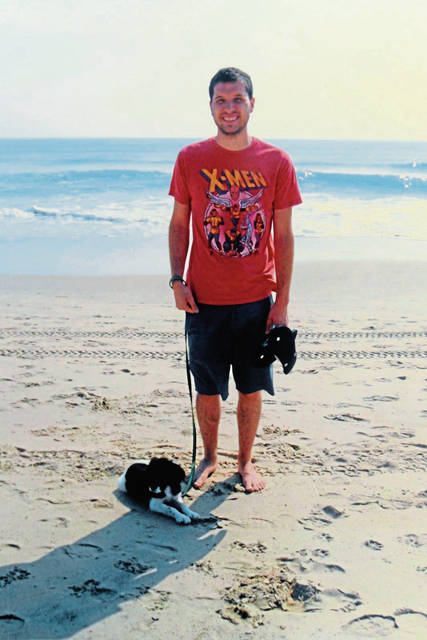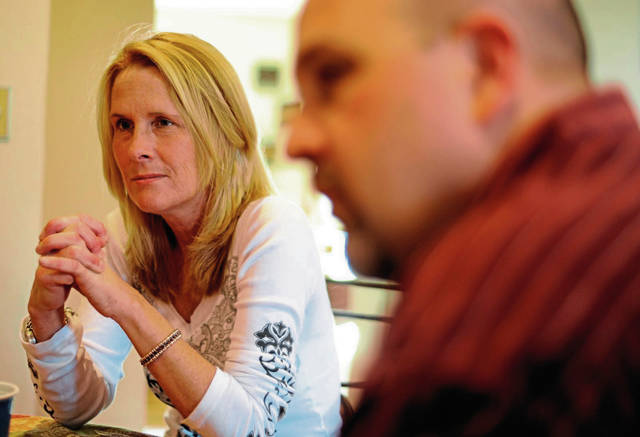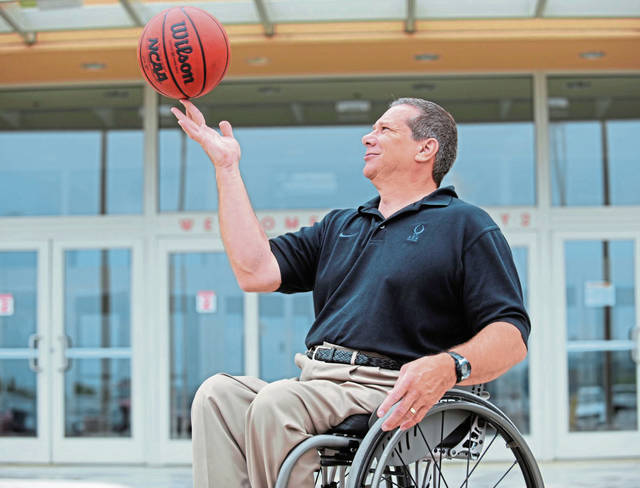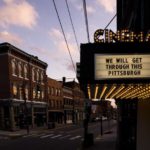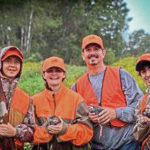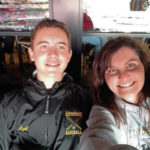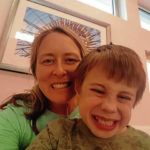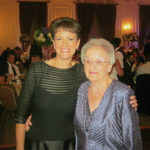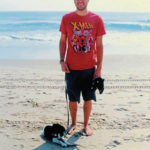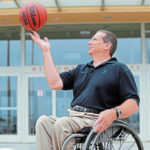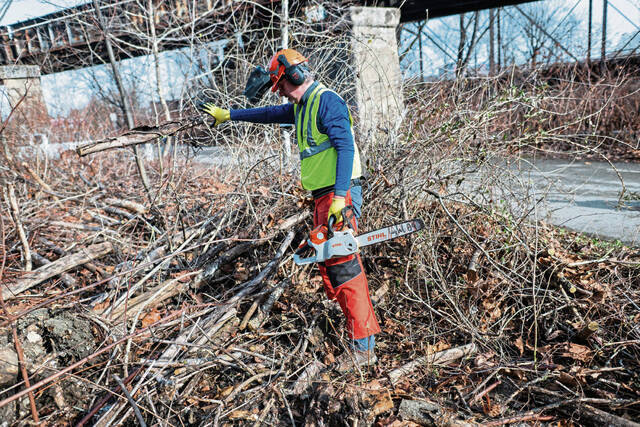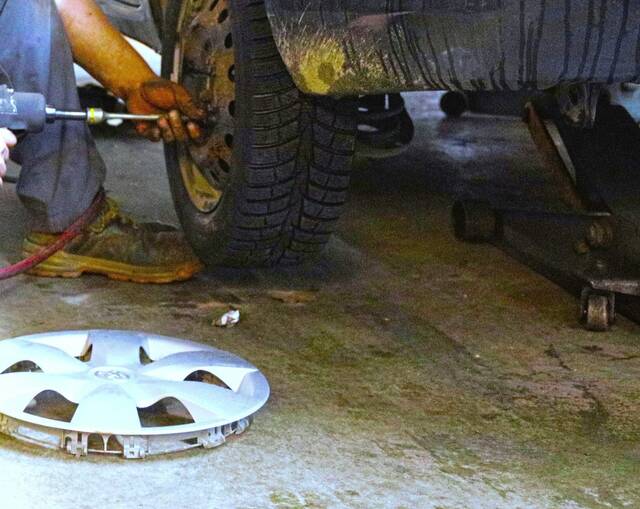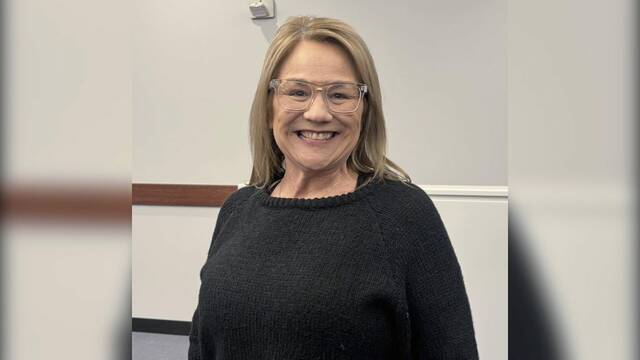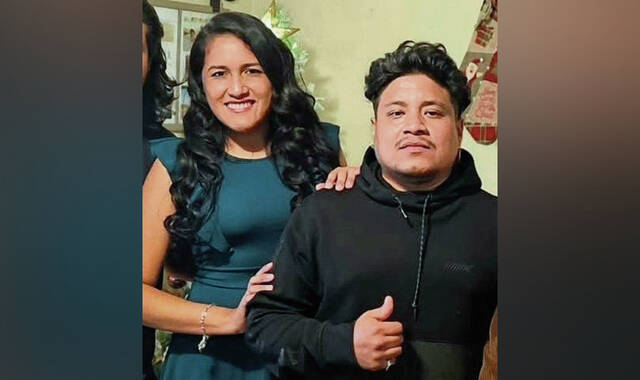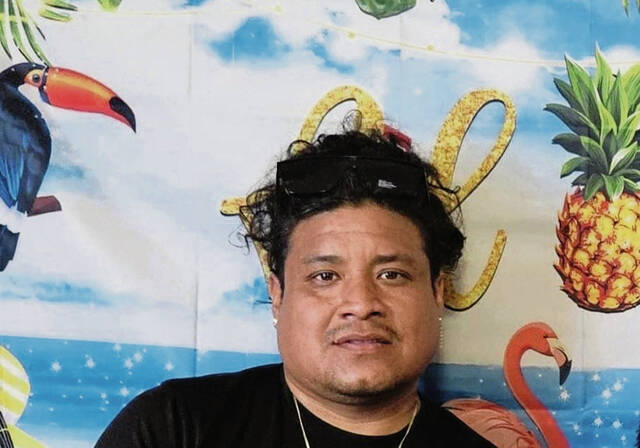Hope. … On the darkest days, it can be elusive.
In the throes of this global health crisis, it is a word spoken by many. · There is hope for a vaccine, hope for a return to normalcy and hope for those sickened by the disease that began a world away but crept across our doorstep to control even the most routine aspects of our lives. · But there are those among us, who even in the face of life’s worst tragedies, did not relinquish their hope for better days. · Some looked to their faith. Others clung to friends. Still others built communities of those who shared their heartbreak. · In this time of spiritual and seasonal renewal, they offer their stories as proof that from fear and grief can come hope for a future in which the pain is not forgotten, but once again peace and joy are found in life’s simplest pleasures.
Doing for others
Glenn and Carole Johnson journeyed through the darkest days of their lives, and beyond, by putting the power of their faith into action.
In December 1988, the Hempfield couple lost their daughter, Beth Ann, to an act of global terrorism. Beth Ann, a senior at Seton Hill University, was on her way home from a semester abroad at Regent’s College in London. She was aboard Pan Am Flight 103 when a bomb blew apart the plane, killing 259 passengers and crew members and 11 people on the ground below in Lockerbie, Scotland.
“I still miss her so much,” Carole Johnson, 76, said of the vibrant young woman who would have turned 53 this year.
The Johnsons took their grief and transformed it into hope.
That hope helped weld the surviving family members of the victims of Pan Am Flight 103 into a potent force that pushed for answers to the tragedy and forever enhanced aviation security in America.
As the Johnsons, deeply devout Catholics, prepared to celebrate Easter under stay-at-home orders this year, they spoke of the group that formed around the hope that they could make a difference for others.
“The group was like a village,” said Carole Johnson. “We had maybe 75 to start with. As word got out, the group grew larger. It always seemed when we needed someone on the political end, we had someone who was connected high up in politics. And when we needed an attorney, we had one. Everyone had a specialty that helped the group.”
Three years after that awful night, an investigation by the FBI and authorities in Scotland issued arrest warrants for a pair of Libyan nationals. A trial was held in the Netherlands, and Abdelbaset al-Megrahi, a Libyan intelligence officer, was convicted in the scheme. Libyan leader Moammar Gadhafi settled the case by paying millions to the surviving Pan Am 103 family members.
Glenn Johnson, 78, has been part of the committee that helped craft legislation that strengthened aviation security and ultimately gave birth to Real ID. He’s still part of the Transportation Security Administration’s Aviation Security Advisory Committee that advises Congress on those issues.
But just as important, Johnson said his wife realized early on that the family survivors’ group could become an emotional bulwark for the grieving survivors.
They comforted one another and soldiered on, stepping forward to counsel survivors of other aviation tragedies such as the crash of USAir Flight 427 in Pittsburgh in 1994.
Still, that alone could not fill the void created by the loss of the Johnsons’ daughter.
“If I’m feeling bad, I think of someone who could use a day brightener,” Carole Johnson said.
She recalled the day she and Glenn went to a friend’s home, tore out some dying shrubs, planted new ones and worked to spruce up her yard.
“At the end of the day, we were tired and dirty, but we felt good,” she said.
In recent years, the Johnsons have tapped the settlement they received to fund programs in memory of Beth Ann.
“We agreed to support things that would have been of interest to Beth, things involving the arts and children,” Carole Johnson said.
They’ve underwritten a children’s room in the Scottdale Public Library, a children’s arts program at Seton Hill University and most recently made a five-year commitment to help underwrite the marching band at Connellsville High School.
“Doing for others, I would have to say, is our greatest source of getting through this life,” Carole Johnson said.
— By Deb Erdley
Enjoying the present
Mary Schaab doesn’t let her mind wander to the past — or the future.
She lives for today.
“Let’s just take care of today and then we’ll worry about tomorrow,” said Schaab of Greensburg, the longtime owner of Route 66 Grille.
Eight years ago, Mary and her husband, Harry, lost their son, Mike, 25, who was killed by a troubled gunman who walked into the lobby at UPMC Western Psychiatric Institute and Clinic. The loss of Mike, a therapist there, was not the first tragedy the Schaabs had encountered. Two years before, their daughter, Nancy, was shot to death by her boyfriend.
“I don’t let my mind go there,” Mary Schaab said about the tragedies. “You think about it for a moment and switch it.”
Time has helped, she said.
“It’s not that you’ll ever forget, or that you’ll ever feel less pain. It’s just that it’s not as frequent,” she said.
In the midst of the pandemic, the Schaabs have opted to keep their restaurant open for take-out a few hours a day. Sticking to their routine, and keeping their business open, is keeping them sane, she said.
“We don’t have a huge staff, but they’re like family,” she said. “We didn’t want them to struggle. This way, they come up, they get out for a little bit, they get to socialize for a little bit, and they feel like they’re helping people. I don’t know what I would do if we didn’t have that.”
After losing Mike and Nancy, the Schaabs worried about not being able to enjoy anything, thinking their children wouldn’t be there with them. They learned to cope by focusing on the present — something Mary said could help people coping with the darkness and uncertainty of the covid-19 pandemic.
“Let’s just enjoy what we have right now and not worry about what we don’t have for tomorrow,” she said.
To cope, she suggests people do as she does — opting for a dose of reruns on TVLand. Humor will help us survive, she said.
“If we can’t laugh at something, then we’re not going to make it,” she said.
— By Luis Fabregas
Keeping the faith
Angie Apel remembers the helpers, the well-wishers and the never-ending support from strangers.
In November 2015, a freak accident forever changed her family. Her son Seth, then 12, was unloading firewood at his home in Knox, Clarion County, when his coat sleeve became entangled in a piece of tractor equipment. The machinery tore off his right arm just beneath the shoulder.
“There were so many people who reached out after Seth’s accident,” Angie Apel said. “We never forgot that, and it really taught all of us to think about how we can help others. A lot of families are overwhelmed right now (by the covid-19 crisis) , and we’re praying for them.”
After quick response by rescue workers, a medical helicopter flew Seth to UPMC Children’s Hospital of Pittsburgh, where Dr. Lorelei Grunwaldt and a trauma team reattached the arm in a six-hour surgery.
Angie Apel draws upon strength from her faith and support from others as the coronavirus pandemic grips the nation.
She remembers that her journey had a happy ending.
Seth is 16 now. He has a driver’s license. He still plays baseball and loves the outdoors.
He and his family maintain a close friendship with Grunwaldt.
“It is a very treasured relationship,” Angie Apel said.
He’s undergone subsequent surgeries and more procedures lie ahead. He has use of his right arm and elbow. A surgery intended to give him more feeling in his wrist and hand was scheduled for this spring.
The pandemic pushed it back at least until summer.
Seth and his five siblings, ranging in age from 6 to 20, have all been home-schooled throughout their childhoods.
“We don’t have that adjustment to make right now with school,” Angie Apel said. “But I know it’s hard on a lot of people. My advice for families is for their children to slow down and come up with ideas to explore, things they are interested in pursuing. It can be a real blessing — an opportunity to do some things you haven’t had time to do before.”
Faith has always been a large part of the Apel household.
“God works in small ways to encourage us and show us love through other people,” Angie Apel said. “And we believe that everything will be all right. He never promised us that we’re not going to go through bad things. We have to keep the faith and know where we’re putting our trust.”
— By Ben Schmitt
‘We went through so much.’
Jessica and Rick Goeller of Indiana Township understand the importance of sustaining hope when faced with the unthinkable.
In July 2017, their son, Lucas, received a lifesaving liver at UPMC Children’s Hospital of Pittsburgh from a 3-year-old Nebraska girl who had died of brain cancer a day earlier.
Lucas had waited for 18 months for a match, and doctors didn’t know how much longer he would live. The story gained publicity at the time as a second local child, Angelo Giorno of Derry, received the girl’s small intestine to combat a digestive disorder known as short bowel syndrome. Angelo returned home but died two months later.
Lucas is now 7 and “growing like a weed,” his mother said this week.
“His activity level is through the roof,” Jessica Goeller said. “He’s doing great.”
Lucas averages about two visits per year with his transplant team and has blood work done monthly.
These days, there are different concerns. Rick Goeller is a pilot for United Airlines. While his schedule has slowed down during the pandemic, he’s still making some flights.
“Lucas is an immune-suppressed child, and my husband is flying all over the country,” Jessica Goeller said. “It can be worrisome, but it comes down to letting go, doing your best to social distance and putting your trust in God.”
Jessica Goeller, who has four sons, said getting through Lucas’ transplant and his recovery has better prepared her family for difficult times.
“We went through so much,” she said. “There were so many different scenarios, where we were wondering what the next day would bring. We have a lot of practice in doing that. Worry and fear are not an option. You have to learn to let it go or else it will consume you and put you in chains.”
— By Ben Schmitt
Relying on family and friends
To hear her speak and see her warm smile and bright eyes, it’s hard to realize that Andrea Wedner has been through one of the worst experiences imaginable.
On Oct. 27, 2018, Wedner and her mother, Rose Mallinger, 97, were attending worship services at the Tree of Life synagogue when a gunman burst in and killed 11 people. Once they realized what was happening, Wedner and her mother dropped to the ground to avoid the gunfire, but both were hit.
As Wedner lay wounded, wondering if she might bleed to death, she soon realized that her mother was dead.
Nearly a year-and-a-half after the horrors of that day, Wedner approaches each day of her life with a positive outlook.
“I am an optimistic person, and my family keeps me in a positive frame of mind,” Wedner said. “I deal with whatever comes my way one day at a time. I find a way to keep moving forward, no matter what.”
In the midst of the covid-19 crisis, Wedner said that everyone needs a support network they can tap into, whether it’s family, friends or professional help.
“What gives me hope is my family and friends, the goodness I’ve experienced and that I’ve seen in people, and the faith that people will do the right thing,” Wedner said.
“I listen solely to what our medical and health experts advise and, while the situation seems dire at times, this pandemic will end. Maybe our lives will never be quite the same, and because of what happened on Oct. 27 mine will never be, and there will be changes in how we do things in the future, but we’ll recover. We always have.”
Wedner has advice for people who feel overwhelmed or have recently lost a job or had their employment compromised because of the pandemic.
“This has happened to several family members,” Wedner said. “I would say since you were talented enough to be hired and needed in the first place, your skills will be required again. Try to be positive and minimize the negative.”
Wedner said there are life lessons to be learned from facing a situation that is filled with so much upheaval and uncertainty.
“Life is so precious, and I don’t let the small things bother me and don’t let myself get upset easily,” Wedner said.
“I am not going to let this pandemic keep me from enjoying life, even as it’s kept us homebound. I am enjoying friends via FaceTime, and I tell people to treasure each day and appreciate every moment.”
— By Paul Guggenheimer
From the negative to the positive
John Sikora was terrified of his future after an automobile accident left the college-bound basketball star paralyzed from the waist down.
But he flourished, becoming a founder of the Steelwheelers basketball team and the HOPE Network that has helped thousands of the physically impaired play sports.
The Buffalo Township resident is an assistant coach for the U.S. men’s wheelchair team for the Paralympic Games and a former assistant coach for the Freeport Area High School boys basketball team.
Like a birthday or a wedding anniversary, Sikora still remembers the date of his life-altering car crash — May 15, 1971.
He couldn’t get out of bed for three months after the accident.
“It was almost to the point where I wanted to live but I didn’t want to wake up because as long as you are sleeping, you aren’t dealing with the pain, or the immobility or paralysis,” he said.
Sikora’s basketball skills, while in a wheelchair, became legendary and attracted attention. Fred Rogers featured Sikora several times on “Mr. Rogers Neighborhood” playing basketball or explaining disabilities and the importance of physicality to the public.
Sikora pushed himself to do a little more each day after the accident. That consistency of positive momentum was enough for him to realize that “life was still available.”
The fear disappeared after awhile, “like flipping a switch, moving from the negative to the positive, still not knowing what is there but let’s go out and discover it.”
Support and love from his family and his faith in God turned into comfort and courage.
“I had a mindset that this was not going to defeat me, that I would be OK and I would be a pioneer,” he said. “I didn’t want to be labeled as a person with a disability. I wanted people to see me as me.”
He attended the University of Pittsburgh, earned a degree in psychology and social work, and married the love his life, Susan Garrett-Sikora.
After a couple of decades of helping patients afflicted with spinal cord injuries, strokes and other disabilities at Harmarville Rehabilitation in Indiana Township (now Encompass Health Rehabilitation Hospital), Sikora realized he had a wealth of knowledge and energy.
“I wanted to take it to other people,” he said. “Not that they have to compete but to just be more physically active in life.”
So it came to be. The HOPE Network, based in Indiana Township, and serving the Greater Pittsburgh region, offers fitness, conditioning and wellness programs for the disabled, including wheelchair basketball, tennis, quad rugby, cycling, water skiing, snow skiing, golf, bocce, air rifle and pediatric sports.
“Oftentimes, you will surprise yourself,” he said, “when you open the mindset to the freedom to explore and navigate the known and the unknown.”
— By Mary Ann Thomas
Deb Erdley, Luis Fabregas, Ben Schmitt, Paul Guggenheimer and Mary Ann Thomas all are members of the Tribune-Review staff.


